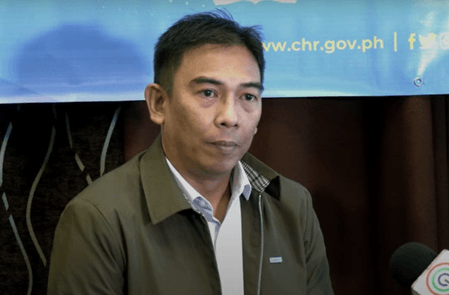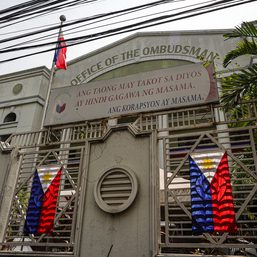SUMMARY
This is AI generated summarization, which may have errors. For context, always refer to the full article.
![[ANALYSIS] The Philippine National Police’s efforts to cure the PNP](https://www.rappler.com/tachyon/2023/10/focus-pnp.jpg)
There is recent news of a Senate bill (SB 2449) authored by Senator Bato de la Rosa and three others (Revilla, Ejercito and Zubiri), seeking to introduce “organizational reforms” to the Philippine National Police (PNP). The senators have ignored the crying need for institutional reform – to reduce drastically the endemic corruption, and “investigative shortcuts” taken: torture/physical abuse, planting of evidence and extrajudicial killings (EJKs), among others.
Introducing organizational reforms when institutional reform is needed is like rearranging the deck chairs on the Titanic when it was sinking.
Besides, my unimpeachable source opines that SB 2449’s main purpose is merely to accommodate the burgeoning number of generals in the PNP who are currently seeking command positions. You will agree with me, Reader, when I say that the authors are not exactly the brightest bulbs in the Senate.
Then there is the news that 47 Philippine National Police (PNP) Brigadiers General, 7 Majors General and 1 Lieutenant General (55 in all), recently took their oath before President Ferdinand Marcos Jr. At least, the President talked to them about “zero tolerance for corruption and human rights abuses” in the PNP. He could have given more specific suggestions on how to achieve that (there’s been a plan since 2005), but at this point, I’ll take it.
It is not as if the PNP hasn’t tried to cure itself. But the attempts come in ebbs and flows, depending on the quality of the PNP leadership, as well as its ability to withstand political interference (to put it bluntly, not to have such brown noses).
Let us give credit where credit is due.
For example, the PNP has claimed, as of the end of 2022, that 100% of its responses to calls for assistance are done within 15 minutes (this was in the Commission on Audit report). It had hit its target. Whether that target response time is too long or just right, I do not know. And whether that 100% is correct, I should like to hear from Filipinos who have called for PNP help. But that is the claim, and unless proven otherwise, I will take it at face value.
Then, there is a more recent achievement. The PNP’s Directorate for Investigation and Detective Management (DIDM) recently announced that all (100%) of its 7,264 investigators occupying investigative positions have finally all been formally trained.
You may wonder, Reader, why this should deserve credit.
Cacdac
In the first place, before one becomes an investigator, you may ask, shouldn’t one have been properly trained? Well, apparently not in an institution like the PNP (which shows how deep their problem runs). Because when now retired Police Deputy Director General (PDDG) Arturo Cacdac, Jr. took over the directorate in 2010 (yes, 2010), one of the first things he learned was that only one in four personnel occupying investigative positions all over the country had formal training in investigation – 5,409 out of the 7,264 (74.46%) were clueless.
It took him all of 13 years to correct that situation, but the day before he retired, it was accomplished. He did it. Now, Filipinos can rest assured that police investigators know what they are doing, or at least have received formal training.
Ebdane
Now, about the quality of the PNP leadership. Again, we have examples. In 2004, Transparency International’s “Global Corruption Barometer” wrote that based on their surveys in the country, the PNP was identified as the most corrupt national institution in the Philippines. This 2004 report covered the year 2003. Who was the chief PNP then? General Hermogenes Ebdane, who was PNP chief from July 2002 to August 2004. So, on this basis, one can say that he is the example of poor leadership. Moreover, it must be noted that one of the demands of the Oakwood rebels (mostly from PMA) in July 2003 was the resignation of Ebdane as chief PNP. Of course, the Oakwood mutiny failed, but for them to demand Ebdane’s resignation, who is himself an alumnus of the Philippine Military Academy (PMA), must say something about what was going on in the PNP at the time.
Aglipay
Ebdane’s successor Edgar Aglipay acknowledged publicly the weaknesses of the PNP, and took steps to improve PMA’s image and, to some extent, its substance:
- A campaign against the “kotong” operations of police – solicitation of petty bribes for minor traffic offenses;
- a campaign to get officers back in proper uniform, properly groomed; deployment of police in their three basic functions of patrolling, traffic management and investigation;
- Even Camp Crame (police headquarters) was cleaned and landscaped. And he created two disciplinary barracks – one in Subic, one in Camp Molintas, Benguet for retraining errant personnel, which survive up to today.
Aglipay’s performance was evocative of Ping Lacson who served in 2000 (anti-kotong, police had to have at worst a 34-inch waist), but it was very visible to the public eye that something was being done. And when he left, eight months later, he presented an anti-corruption plan to President Arroyo, describing the endemic corruption – from recruitment to retirement – in the PNP and what to do about it. Whether it was followed or not, I have no idea.
Interestingly, Ebdane, despite his obviously poor performance in the PNP, was greatly rewarded after he left. Then-President Gloria Arroyo made him national security adviser immediately upon his retirement, then appointed him to her Cabinet as secretary of Public Works and Highways where he served for four and a half years (taking off for a while to be secretary of National Defense).
This suggests that in the Philippines (at least, at that time), performance as a public official is immaterial, even to the extent that your younger colleagues in the military abjure you. It is political clout – who you know, rather than what you know – that determines your fate.
But back to corruption and poor management in the PNP. It ebbs and it flows, with more flowing than ebbing.
One of the great scandals of PNP corruption, subject to Senate investigations in 2006, was the “Recruitment-for-a-fee-scam”, wherein people who were not qualified – flunked the admissions test, or failed the neuropsychiatric exam, or had a criminal record – had only to pay the required bribe, and the impediments would disappear; or even qualified recruits were subject to extortions. Just as bad, if not worse, there were recruits who were admitted because of their influential political backers.
Can you imagine the impact of that scam on the fresh PNP recruits? In effect, the message is that corruption is the way of life in the PNP, and it starts at recruitment.
Albayalde
This problem was finally solved (but not fully) in 2016 when General Oscar Albayalde was head of the National Capital Region (NCR). Each applicant was given a bar code so that when he took exams or underwent any procedure, his ID was that barcode. No names. It made it infinitely more difficult to tamper with exam results or other records. The system has since been adopted by the entire PNP all over the country. Note that it took ten years to solve.
General Albayalde, as NCR and later chief PNP, was one of those that caused the problems of the organization to ebb, rather than to flow. He was well known for his midnight-to-dawn visits to police precincts to keep them on their toes. And he suspended the whole Caloocan police force (all 1100 ) when Kian Lloyd de Los Santos was killed, subjecting them to 45 days of disciplinary action and retraining. Unfortunately – and this is another problem of the PNP – factions with political backing were interested in getting him out, either because he was too efficient or incorrupt. Charges were leveled against him, forcing his resignation. Those charges were later dropped, or dismissed. We lost a good man.
But you may ask, Reader, why were recruits willing or able to pay anywhere from P50,000 to over P200,000, just to get admitted to the PNP? We will discuss that sometime in the future. – Rappler.com
Solita “Winnie” Monsod was the first National Economic and Development Authority secretary appointed after the fall of the Marcos dictatorship in 1986. She is a professor emerita at the UP School of Economics where she taught starting 1983. She finished her degree in economics in UP and obtained her masters in economics at the University of Pennsylvania. She is a board director of Rappler Inc.
1 comment
How does this make you feel?

![[ANALYSIS] The PNP, through the eyes of the PNP](https://www.rappler.com/tachyon/2023/09/pnp-through-pnp-eyes-september-27-2023.png?fit=449%2C449)
![[WATCH] Bamban POGO scandal: There’s a bigger fish than Alice Guo](https://www.rappler.com/tachyon/2024/07/inside-track-tcard-bamban-pogo.jpg?resize=257%2C257&crop=435px%2C0px%2C1080px%2C1080px)



![[OPINION] What kind of citizens are we?](https://www.rappler.com/tachyon/2024/07/tl-what-kind-of-citizen-are-we.jpg?resize=257%2C257&crop=333px%2C0px%2C1080px%2C1080px)
Prof. Winnie Monsod is very correct in asking: “Why were recruits willing or able to pay anywhere from P50,000 to over P200,000, just to get admitted to the PNP? This is similar to the issue in the MBHTE-BARMM about a P300,000 payment for a teaching position. And who knows how much will one pay for a cabinet position? Are we living in a Country ruled by the Lords of Corruption?